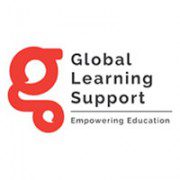Pioneering Education Services Company To Boost Queensland Vet Sector
Queensland is lagging behind the rest of Australia in vocational education and training (VET). Despite a population boom, in the past decade there has been zero growth in VET student numbers to 2012[1], with enrolments falling by a further 12 per cent in 2013[2].
Global Learning Support (GLS), is exhibiting at the ACPET[3] Forum in Brisbane today (29 April) to demonstrate to private vocational education and training providers its unique suite of tools that dramatically improve student completion rates.
GLS co-founder, Jarrod Nation, said the Australian economy is evolving rapidly and without skilling, up-skilling, or cross skilling Australians nationwide there will be chronic skills shortages that will halt productivity growth and lead to declines in Australian living standards.
“GLS is all about the student. Not only do we conduct due-diligence to ensure that students are suited to courses and ready for their rigours, we also provide them with coaching and mentoring services across the journey of their education,” Mr Nation said.
“Queensland lags behind the national VET participation rate in Australia with only 9.7 per cent studying compared with 12 per cent nationally[4]. Therefore it’s even more important that those Queenslanders who are making the effort to improve their skill set are given the support that they need to complete their endeavours.”
GLS is principally targeted at those studying online where the symptoms of disengagement are much harder to identify than in the classroom. Through the delivery of education, years of R&D, and a genuine commitment to student outcomes, the founders of GLS developed the tools to recognise students at risk of non-completion and implement interventions that mitigate this risk.
The ACPET State Forum has the theme: “Quality Governance – Quality Education – Quality Membership” and is being held at the Stamford Plaza, Corner Edward and Margaret Streets, Brisbane, Wednesday 29 April, 8:30AM to 5:30PM.
For media enquiries and interviews please contact:
RMKA: (03) 9036 6390 / Angus Nicholls 0407 495 644 / Maria Vampatella 0421 112 216
About Global Learning Support (GLS) www.globallearningsupport.com
GLS is a leading education services provider. The company partners with education providers and uses its proprietary student support, engagement, and management tools to increase course completion rates.
Currently supporting in excess of 25,000 students, GLS tools have seen online course retention rates as high as 98%.
One of the keys to the success of GLS is maintaining the human touch even while students are completing their courses online.
Key stats:
- Across Australia 1 in 8 people (12 per cent) were studying VET courses in 2013 compared with only 1 in 10 (9.7 per cent) in Queensland.
- Queensland spends much less on education than the national average and the gap is widening.
- Queensland is the most expensive place to educate a student in Australia behind Tasmania. It cost approximately $17.50 per hour to educate a student in 2010, compared to a national cost of approximately $16 per hour.
- Source: Report of the Queensland Skills and Training Taskforce
- The national average was 325 per person, in QLD it was 305 per person in 2010 Source: Productivity Commission 2012 Report on Government Services


